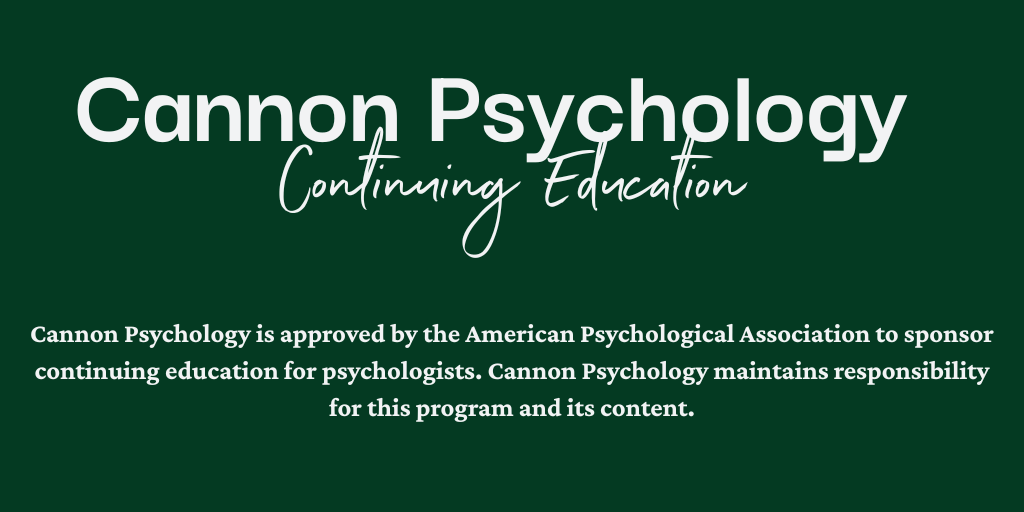

Laws & Ethics Continuing Education Hub for Clinicians
As psychologists, we know that ethical practice is the foundation of effective care. But keeping up with laws, regulations, and emerging technologies isn’t always straightforward. That’s why we’ve created this Ethics CE Hub — offered by an APA-Approved Sponsor — a one-stop resource for clinicians who want to stay informed, competent, and confident in their practice.
Here you’ll find self-paced CE courses that meet licensure renewal requirements while addressing the real-world challenges psychologists face today. Whether you’re navigating telehealth informed consent laws, preparing for the ethical issues in AI integration, or clarifying APA ethics CE requirements, this hub connects you with the guidance and continuing education you need.
Each course blends up-to-date legal standards, APA ethics guidelines, and practical case examples so you can immediately apply what you learn to your practice. You’ll also find blogs, checklists, and tools covering topics like privacy concerns in online therapy, laws governing telepsychology, and emerging issues at the intersection of technology and ethics.
Learn About the CE Course: Telehealth - Efficacy, Laws & Ethics
Earn ethics CEUs from an APA Approved Sponsor while mastering the new landscape of telepsychology. This course explores the latest telehealth efficacy evidence (2025), reviews laws governing telepsychology, and applies APA telepsychology guidelines to real-world practice. You’ll learn how to handle ethical issues in telehealth practice, navigate informed consent laws, and address privacy concerns in online therapy.
With case examples and practical tools, this course prepares you to meet your APA ethics CE requirements while building confidence in your competence — whether you’re practicing online, in-person, or both. To complement the course, the Telehealth Ethics & Compliance Toolkit and Telehealth CE + Compliance Toolkit bundle every ethics and compliance checklist — including Informed Consent, Data Security, and Cross-State Jurisprudence Guides — with the full CE course for a complete system of ethical and legal support.
Stay Compliant & Confident: Telehealth Ethics CE from an APA-Approved Sponsor
Our first collection in the Ethics Hub is the Telehealth & Ethics Blog Series which explores efficacy, laws, and ethical considerations for psychologists practicing online:
Telehealth Efficacy Evidence 2025: What Clinicians Should Know – Reviewing outcome studies for PTSD, depression, and anxiety, and what this means for ethical telepractice.
Therapeutic Alliance in Telehealth: Evidence and Ethics – Exploring client preferences, alliance, and provider concerns, with guidance on maintaining ethical connections online.
Telehealth Access and Equity: Laws and Ethics for Psychologists – Addressing disparities, digital literacy, and ADA requirements to ensure equitable telehealth practice.
Laws Governing Telepsychology and Interstate Licensing Requirements - Understanding PSYPACT, informed consent laws, and compliance strategies for cross-state telehealth practice.
Ethics in Telehealth: Competence and Care - Strengthening psychologist competence, safeguarding privacy, and upholding professional care in online practice.
Featured Tools & Checklists
Build a more compliant, confident telehealth practice with these clinician-facing resources designed to integrate directly with the Telehealth: Efficacy, Laws & Ethics CE Course.
Telepsychology Competency Audit Checklist (Free) – Evaluate your current competence in ethical, clinical, and technical areas of telepractice.
Telehealth Informed Consent Checklist (Free) – Review key elements for compliant, client-centered telehealth consent documentation.
Telehealth Efficacy & Outcomes Checklist – Summarizes research findings across major diagnoses to guide ethical evidence-based telepractice.
Cross-State Telehealth Jurisprudence Checklist & Compliance Guide – Simplifies PSYPACT participation rules and jurisdictional licensing boundaries.
HIPAA & Privacy Compliance Checklist for Practice Websites and Apps – Ensures your telehealth platforms meet privacy, accessibility, and ethical data-handling standards.
Data Security, Management & Destruction Checklist – Strengthen your digital security policies and record-retention procedures in compliance with HHS and NIST guidance.
For a streamlined solution, explore the Telehealth Ethics & Compliance Toolkit or Telehealth CE + Compliance Toolkit, which bundle all six tools with the full CE course.
Why This Matters
Telehealth is no longer a temporary solution — it’s a core part of modern psychological practice. But with this shift come new responsibilities. Psychologists must understand not only whether telehealth is effective, but also how to apply laws governing telepsychology, navigate informed consent requirements, and address privacy concerns in online therapy.
This series matters because it translates research, regulations, and ethical standards into practical guidance. By exploring telehealth efficacy evidence, therapeutic alliance, access and equity, licensing requirements, and ethical competence, we strengthen our ability to provide safe, effective, and ethical care. And with CE courses offered by an APA Approved Sponsor, psychologists can meet their APA ethics CE requirements while gaining confidence in their online practice.
Looking for general EMDR planning strategies? Explore the EMDR Training and Treatment Hub
Continue Learning with CEU Opportunities
Take the next step in building your expertise and learning about APA Telepsychology Standards in:
Cannon Psychology is approved by the American Psychological Association to sponsor continuing education for psychologists. Cannon Psychology maintains responsibility for this program and its content

